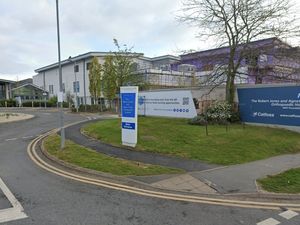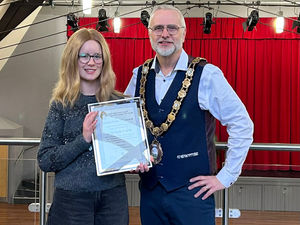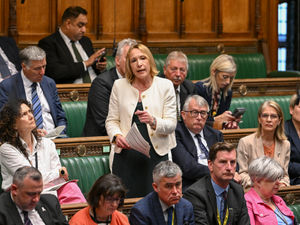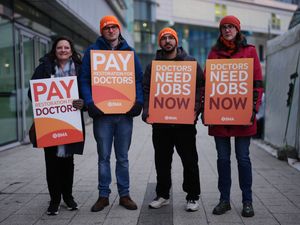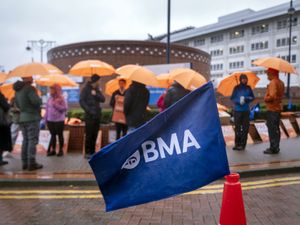Rare mixed race bone marrow donor appeal for Telford boy Khaleel, 12
A Telford schoolboy suffering from leukaemia has launched a plea for a bone marrow donor to come forward – despite there being a slim chance of finding a match.
Khaleel Khan, 12, is undergoing treatment and will need a transplant next month, but his family have been told the odds of securing a donor are less than 20 per cent because he is mixed race.
Now the family, who live in Trench, are appealing for help in raising awareness of his plight.
Khaleel's mother Kelly, 31, said: "Khaleel is now on week six of the relapse treatment and will need a bone marrow transplant in February.
Blood cancer charity Anthony Nolan Trust manages the single stem cell registry, which it uses to find matching donors and works in partnership with the NHS British Bone Marrow Registry and the Welsh Bone Marrow Donor Registry.
Donors aged under 30 can visit the website anthonynolan.org and those aged above 30 can visit dkms.org.uk
More details about the youngsters journey can be found at facebook.com/khaleelkhan211116
"He has three siblings who have been tested for a match, but the chances are extremely low so we are needing people to come forward to see if they are a match.
"Being a match begins with only a saliva test to check if they are compatible, then if someone is found to be a match it is just like giving blood, but will save his life."
She explained how the the Telford Priory School pupil overcame a number of illnesses as a baby including having a shunt fitted to relieve water on the brain and meningitis, but he recovered.
She added: "In June 2014 he started to slowly lose his appetite, but we just assumed he might be about to come down with something.
"On June 30 his gland came up on his neck, we had seen this before with one of the other children when they had a bug so we still weren't worried as he was perfectly fine in himself.
"We took him to Shropdoc that same day thinking he had a throat infection and he was prescribed with antibiotics, but two days later on July 1 his glands seemed a little bigger so after work I took him to our GP." Kelly added: "On July 6 he was complaining of leg pain, but thankfully he was still under Birmingham Children's Hospital as he had yearly checks on his shunt.
"We phoned them and asked if we could bring him to them and they agreed so we took him to their A&E department.
"He was seen almost immediately and they did the usual checks including a blood test.
"They knew what they were looking at but needed to confirm it. The bloods were back two hours later which confirmed leukaemia.
"He was immediately admitted and began chemotherapy. He missed the whole of Year Five at primary school as he was very unwell, but the treatment all went well.
"He went back to school in Year Six and practically carried on like he had never been gone – and with the help of his friends he was a normal young boy again.
"He started secondary school in September 2016 and absolutely loves it. We were looking forward to him finishing treatment in November 2017.
"Then in November 2016 he was admitted to Telford's Princess Royal Hospital with a slight temperature and the blood tests came back showing blasts, and a lumber puncture confirmed that the leukaemia had come back.
"This is going to be a long journey for Khaleel, maybe six months or more. We just don't know.
"Everyone has been so supportive – from day one of diagnosis, not just the relapse – and we are so grateful knowing how much everyone is thinking of him."
Her husband Majid, 37, is Khaleel's full-time carer and they have three other children Aaliyah, eight, Simra, seven, and Khalis, four.
Birmingham Children's Hospital's clinical lead for stem cell transplant Dr Sarah Lawson said: "Stem cell and bone marrow transplants form a crucial part of treatment for a number of blood cancers.
"We know that the chances of finding matching donors for our children and young people from minority ethnic or mixed race backgrounds are under 20 per cent because of a much smaller pool of potential matches.
"It's really important that there's a diverse range of people who are registered to donate some of their blood stem cells and bone marrow."
She added: "Testing is easy and involves a simple mouth swab or people can sign up when they are giving a blood donation, but it could potentially save a life."

